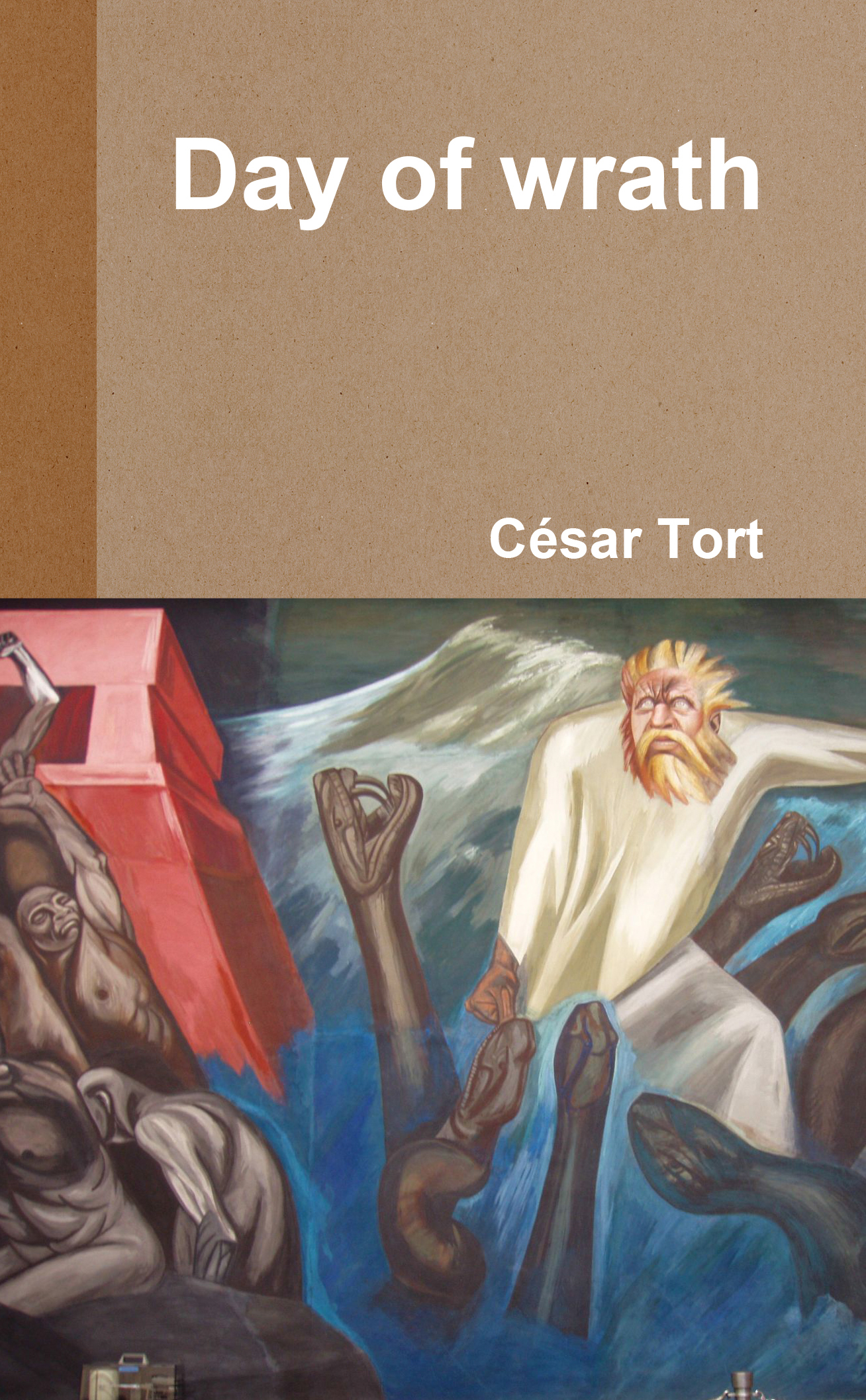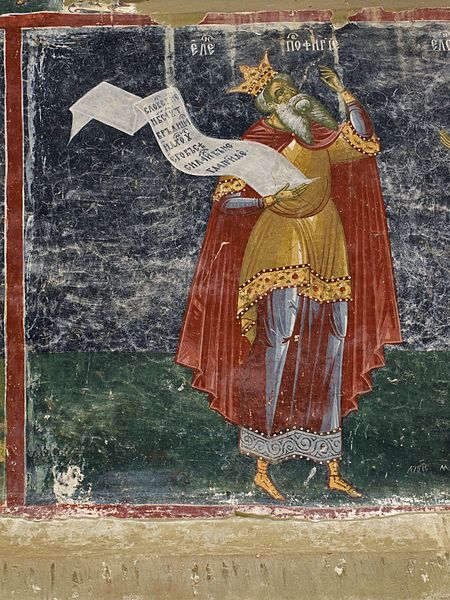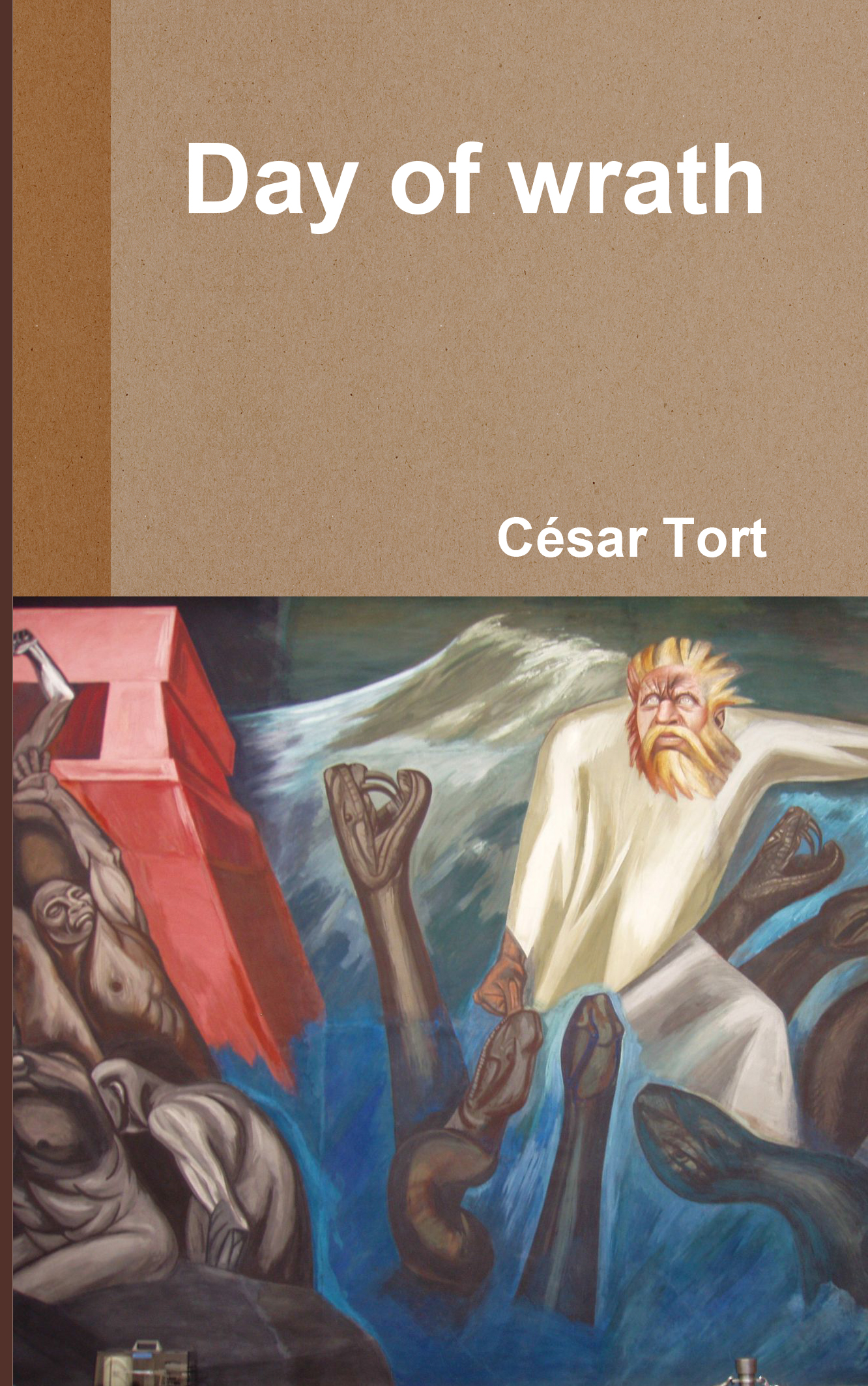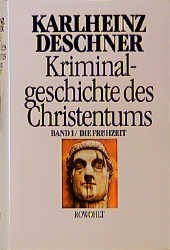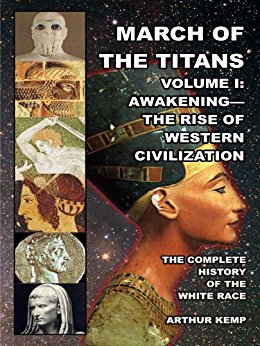Or:
Whites’ irresistible
death-wish
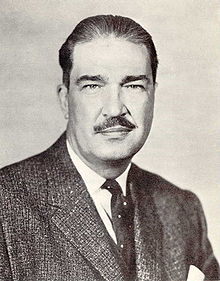
by Revilo Oliver
If you search the annals of mankind for a parallel to the strict materialism and concomitant atheism that is the premise of a very large part of the dominant thought of our time and simply taken for granted by many of our best minds, you will find the closest parallel in the philosophy called Lokayata, of which traces remain in the next-to-oldest parts of the Mahabharata, in the Arthasastra, and in a few other ancient works in Sanskrit. It is quite clear that this virtually scientific materialism flourished while the Aryan conquerors of India were in the plenitude of their power, and vanished as completely as though it had never been when the natives of that sub-continent succeeded, by such devices as miscegenation, military imitation, and exploitation of rivalries, in breaking the Aryan power and racial consciousness.
Late in the sixth century B.C. a young Aryan prince named Siddhartha, doubtless influenced by the Lokayata prevalent in intellectual circles, evolved an atheistic pessimism that differed from a strict materialism only in the assumption that an individual’s will-to-live (as distinct from his mind and personality) could survive his death. This palingenesis of the will (which must be sharply distinguished from the reincarnation of a soul) strikingly resembled the basis of the modern philosophy of Schopenhauer, and Siddhartha, yielding to our racial instinct to deduce and formulate universal laws, presented it as true for all men. His doctrine therefore appealed to sentimental Aryans who were concerned for “all mankind” and had an itch to “do good” for the lower races by pretending that those races were their equals.
They accordingly preached the philosophy of Siddhartha and gradually transformed that bleak pessimism into a religion complete with gods, saviors, and innumerable angels and demons, and they called Siddhartha “the Enlightener of Mankind” (Buddha). As an odd mixture of philosophy and religion, Buddhism became the Established Religion of India, consummated the mongrelization of the Aryans and their submergence in the prolific native races, and then, its work of subversion accomplished, it disappeared from India and survived only as a grossly superstitious religion in Tibet, China, Japan, and adjacent Mongolian territories, and, with many doctrinal differences, in Ceylon and Southeast Asia, where it appears to have become as decadent as Christianity among us.
Book on the Jewish problem
It may also be significant that the Christians have always used the normal Jewish techniques of fraud and forgery, most obviously when they concocted gospels that purport to have been written by eyewitnesses of miraculous and impossible events. The evidence does not permit us to affirm that Christianity was cunningly invented by the Jews as a means of paralysing the healthy instincts of other races, but we can affirm that if the Jews did set out to devise a mental poison that would eventually be lethal to our race, they could have concocted no drug that was more efficacious in the circumstances.
I emphatically call your attention to the obvious fact that the primitive Christian doctrine is a specific demand for the suicide of our race, which survived from the end of the Roman Empire to the present only because our ancestors, of fresh barbarian stock, simply ignored in practice a large part of the pernicious doctrine, especially in northern Europe under essentially aristocratic regimes. Until the disintegration of Protestantism made it possible for any ambitious tailor, clever confidence man, or disgruntled housewife to have “revelations” and pitch the woo at lower classes to make themselves important or fleece the suckers, the professional holy men either contented themselves with telling our people they were “sinful” or used the common devices of theologians to conceal the import of the holy book. (Even so, however, the Catholic dervishes are obviously responsible for the eventual dominance of mestizos in “Latin” America, and many similar misfortunes.)
For the deplorable acceptance of Christianity by the ignorant barbarians of our race, I have tried to account in my book, Christianity and the Survival of the West. I would now change nothing in that discussion except to make it more emphatic, for in the years since I wrote it, I have come to the conclusion that, with only numerically insignificant exceptions, the Christians are useless in any effort to preserve our race, and that our domestic enemies are, from their standpoint, well advised to subsidize, as they are now doing, the ranting of evangelical shamans and the revival of menticidal superstitions by every means, including the hiring of technicians who can pose as “scientists” and “prove,” by subtle or impudent tricks, the “truth” of the flimsiest hoaxes and the most preposterous notions. The development of Christianity in all the sects of the Western world during the past two centuries has been the progressive elimination from all of them of the elements of our natively Aryan morality that were superimposed on the doctrine before and during the Middle Ages to make it acceptable to our race and so a religion that could not be exported as a whole to other races. With the progressive weakening of our racial instincts, all the cults have been restored to conformity with the “primitive” Christianity of the holy book, i.e., to the undiluted poison of the Jewish originals. I should, perhaps, have made it more explicit in my little book that the effective power of the alien cult is by no means confined to sects that affirm a belief in supernatural beings. As I have stressed in other writings, when the Christian myths became unbelievable, they left in the minds of even intelligent and educated men a residue, the detritus of the rejected mythology, in the form of superstitions about “all mankind,” “human rights,” and similar figments of the imagination that had gained currency only on the assumption that they had been decreed by an omnipotent deity, so that in practical terms we must regard as basically Christian and religious such irrational cults as Communism and the tangle of fancies that is called “Liberalism” and is the most widely accepted faith among our people today. I am a little encouraged that today some of the more intelligent “Liberals” are at last perceiving that their supposedly rational creed is simply based on the Christian myths they have consciously rejected. I note, for example, that Mary Kenny, who describes herself as “a former radical” (The Sunday Telegraph, 27 January 1980, pp. 8-9), has come to the realization that “so many of the [Liberals’] political ideas… are religious at root. The search for equality in the secular sense is a replacement of the Judaeo-Christian idea that God loves every individual equally… The feelings of guilt or, indeed, pity, which once went into the religious drive, are being transferred to secular ideas to the ultimate destruction of our civilisation.”
So far as there is hope for us, it lies, I think, in this belated tendency to take account of biological realities.
The Doom on Nations. In the foregoing pages I have tried only to suggest what seem to me to be the most important phenomena that must be taken into account in forming an objective estimate of the Jews and in considering dispassionately the present plight of our race and the doom that seems to hang over our children and over ourselves, unless we are individuals who have already come prope ad ipsos exactae aetatis terminos.
I do not know what, if anything, can be done to preserve a species that some judicious observers believe to be driven by a largely subconscious, but irresistible, death-wish. In 1914, although we had the Jews on our backs, we were indubitably the dominant race on earth; we are now a despised and degraded species of anthropoids on whom all other species, including the very lowest and most brutish, joyously feed. When I see that our people are either too doltish to perceive their degradation or too craven to care, I am close to despair. Even a few decades ago, I should not have believed it possible that here in the United States Aryans would willingly see their children hauled to “schools” to be defiled by enforced association with savages and to be robbed, beaten, raped, and mutilated by the animals… Are creatures that accept such degradation capable of survival or even fit to live? Is it only that they have been enslaved by foul superstitions, or have their brains been so clotted by centuries of systematic poisoning that they have been rendered permanently and irremediably imbecile?
When the Jews invade a nation, their first concern is, as prudence demands, to acquire control over the minds of their victims. In the middle of the Nineteenth Century, Lord Harrington told Parliament that the Jews already controlled “a large portion” of the British press, and, of course, in other Aryan countries they had been equally or more successful. Less than a century later, their control over all the means of communication within every Aryan nation had become virtually absolute, although a few small journals are still permitted to publish some articles that the occupying power has not approved. In this connection, it is well to remember the dictum of Dzhugashvili (alias Stalin) that a periodical with a circulation of 10,000 or less was not worth capturing or suppressing. It is also true that the Jews need to have a little open opposition to maintain the fiction that they are “persecuted,” and it is possible that they have encouraged on a small scale the more absurd and impractical forms of “anti-Semitism” for precisely that purpose. But they seem now to feel that they may safely exhibit their arrogance and to have resolved that no Aryan cur shall be permitted to bark at his owners or even to whimper audibly.
For all practical purposes, the natural aristocracy of our race, which once gave it some sense of direction, has been totally destroyed, by revolutionary massacres, by contrived wars for hallucinatory ends, by economic looting under the guise of “democracy,” by internal corruption through the fostering of its vices, and by miscegenation. We are left with what is, on the whole, an Aryan proletariat, differentiated only by income, and, especially if the income is somewhat above average, willing to submit to anything and even to do anything for a few additional dollars, pounds, or rand. Our entire population, with almost no significant exceptions, is now at the mercy of, and therefore enslaved by, the economic pressures which the Jews exert at the first signs of disaffection. Our race’s traditional suspicion of “tradesmen” was only realistic. The man whose income depends on vending to the masses is always subject to temptations to profit that are likely to be stronger than any moral restraints he may theoretically acknowledge, and today he is no more than a slave at the mercy of his masters. Even more precarious is the status of those who have no material goods to sell, such as authors, journalists, actors, clergymen and other soothsayers… whose livelihood depends entirely on the sale of words, mere sounds whether spoken or written, to masses whose tastes have been formed by the formidable machinery that controls their minds. These facts of economic enslavement lead many acute observers to the conclusion that our race’s only chance of survival lies in the chance that the Jews, blinded by their own arrogant confidence in their absolute superiority, will permit or precipitate a total collapse of organized society into the anarchy in which the strong and resolute will again survive at the expense of the weak and foolish.
Book on the Christian problem
The foregoing pages were written in March and April, 1969, as a sequel to my article, “After Fifty Years,” and were to be published first as a series of articles and then as a booklet on behalf of the newly formed National Youth Alliance.
I was unwilling to have the booklet published under other auspices because conversations with some very influential Christians showed me the futility of trying to talk sense to them. Their plan for salvaging the nation consisted of cursing the Jews and repudiating reason by reciting the mantram, “A little child shall lead them.” They could not remember that precisely that phrase had been the inspiration of the Children’s Crusade, which succeeded only in filling the slave-markets of the Near East with a choice breed of biped cattle.
I also observed that, on the whole, American “conservatives” and “anti-Communists” seem to be either unwilling or unable to learn anything from the total and unmitigated failure of all their efforts for the past fifty years. They have dwindled to a little band of aged and aging men and women who now can talk only to themselves, repeating ever more shrilly their futile anachronisms, closing their eyes more tightly to avoid seeing the world of today, and retreating ever farther into a realm of fantasy filled with good fairies and wicked witches who can be summoned or exorcised with magic words. And they have, inadvertently and unwittingly, made patriotic organizations almost a monopoly of confidence men who cynically sell them fallacious hopes and comforting fictions.
The last years of the late Whittaker Chambers were overshadowed by a bleak pessimism of which some adumbrations appear in the pages of his Witness and the posthumous book, Cold Friday (1964). He was convinced that the American people are actuated by a subconscious, but ineradicable and irresistible, death-wish—a subliminal longing for extinction that makes them turn in fury on anyone who tries to make possible their survival. Before his death in 1962 so drastic a conclusion, extending the effects of morbid psychological states and degenerative diseases to an entire population or even an entire race, seemed highly improbable and could be dismissed as a reflection of the bitterness of his own experience. But another decade has produced no evidence that Chambers was not right. We usually tell ourselves that our domestic enemies have stealthily captured all of our means of information and communication, and now administer through the schools, the liepapers, and the boob-tubes a corrosive brainwashing that accounts for the ovine apathy of our people as they are herded toward national suicide, but it seems a little odd that our people should have been so obtuse as to permit that capture, and we cannot categorically deny that what we optimistically attribute to systematic brainwashing may have a deeper and hidden cause.
Our race is a biological species, and our peculiar intelligence, like the gorilla’s mighty shoulders, once gave us dominance over other species. But what we must now objectively observe in our behavior is not really the gorilla’s apathy. It is something much worse: a perverse and idiotic delight in whatever weakens us and strengthens our enemies. This morbid racial masochism is now most conspicuous in the United States and Britain, where we are not only doing everything in our power to subsidize and accelerate the breeding of voracious parasites to impoverish, degrade, and destroy us, but are also applying the most effective biological techniques to breed ourselves into imbecility and eventual extinction.
Six years ago in my Conspiracy or Degeneracy? I asked the one crucial question: Have we, the men of the West, lost the will to live?
Nothing, certainly, has happened since then to suggest a negative answer. To be sure, after some sensationally flagitious outrage to our race, a considerable number of men, invariably the least “educated,” mutter angrily among themselves; and in a city of almost two million some fifty men and women may boldly assemble to voice their protest, thus embarrassing the vast majority of Aryans, who hasten to assure the world that their heads are so stuffed with mush that they love their Enemies and hope for nothing better than the privilege of being spat-on and kicked some more. And if the outrage is widely reported, the computers will whirr more loudly as they churn out appeals to patriotic suckers, and the travelling salesmen will drive harder as they rush from chapter-meeting to chapter-meeting to meet a temporarily increased demand for patriotic paregoric to soothe nervous stomachs. Nowhere can one discern the slightest indication that in the great majority of our people the racial instinct of self-preservation has not been lost.
The question remains unanswered, however, for we cannot yet determine whether the instinct has been extinguished or is merely in abeyance while our people are in a kind of cataleptic trance from which they may be roused by physical suffering and acute privation when the times comes, as it assuredly will in a few years. In the meantime the question remains open, although our fragmentary data point to an affirmative answer—to the loss of the will to live. The laws of biological processes, like the law of gravitation, are constant and unalterable; they cannot be evaded by magic or oratory or whimpering; and it would be supremely silly to expostulate with a people that is not biologically fit to survive.
All these considerations confirmed my decision to withhold these pages from the press. This booklet is now published at the instance of Mr. Richard Cotten, who refuses to despair of the future, and who has himself set an example of perseverance in the face of great odds.
The economic status of our ruined nation is apparent to professional economists, who now speculate only about the date at which the counterfeit dollars printed by the Federal Reserve will be declared worthless and replaced by new counterfeits. And the goals of “education” are made more obvious by the “university” in California that has proudly established a special “curriculum” for homosexuals.
If you listen perceptively to the young who have not yet been permanently deranged by drugs and depravity, you will see that their febrile emotionalism, their promiscuity, their ostentatious clamor or indifference, their mercurial inconstancy, all mask an underlying and subconscious despair that is terribly significant.
Our situation is desperate, and we can afford no illusions, no retreat into a land of dreams. Now, more than ever, optimism is cowardice.
We are born into this time, and there is no escape from it save in death. If the courage of our ancestors was not entombed with them, if their ability to meet desperate perils with clear-sighted resolution was transmitted to their heirs, if their will to live is not extinct in us, our race and our civilization may yet survive.
If, as I am told, this little booklet can make even the slightest contribution to our survival, its publication is justified.
_____________________
These texts were chosen for my compilation The Fair Race’s Darkest Hour. The first and the last texts have been excerpted from Oliver’s 1973 Christianity and the Survival of the West; the middle text, from The Jewish Strategy published posthumously in 2002.
But however alarming the demons of fornication may have been, the most fearsome demons of all were to be found, teeming like flies on a corpse, around the traditional gods of the empire. Jupiter, Aphrodite, Bacchus and Isis; all of them, in the eyes of these Christian writers, were demonic.
